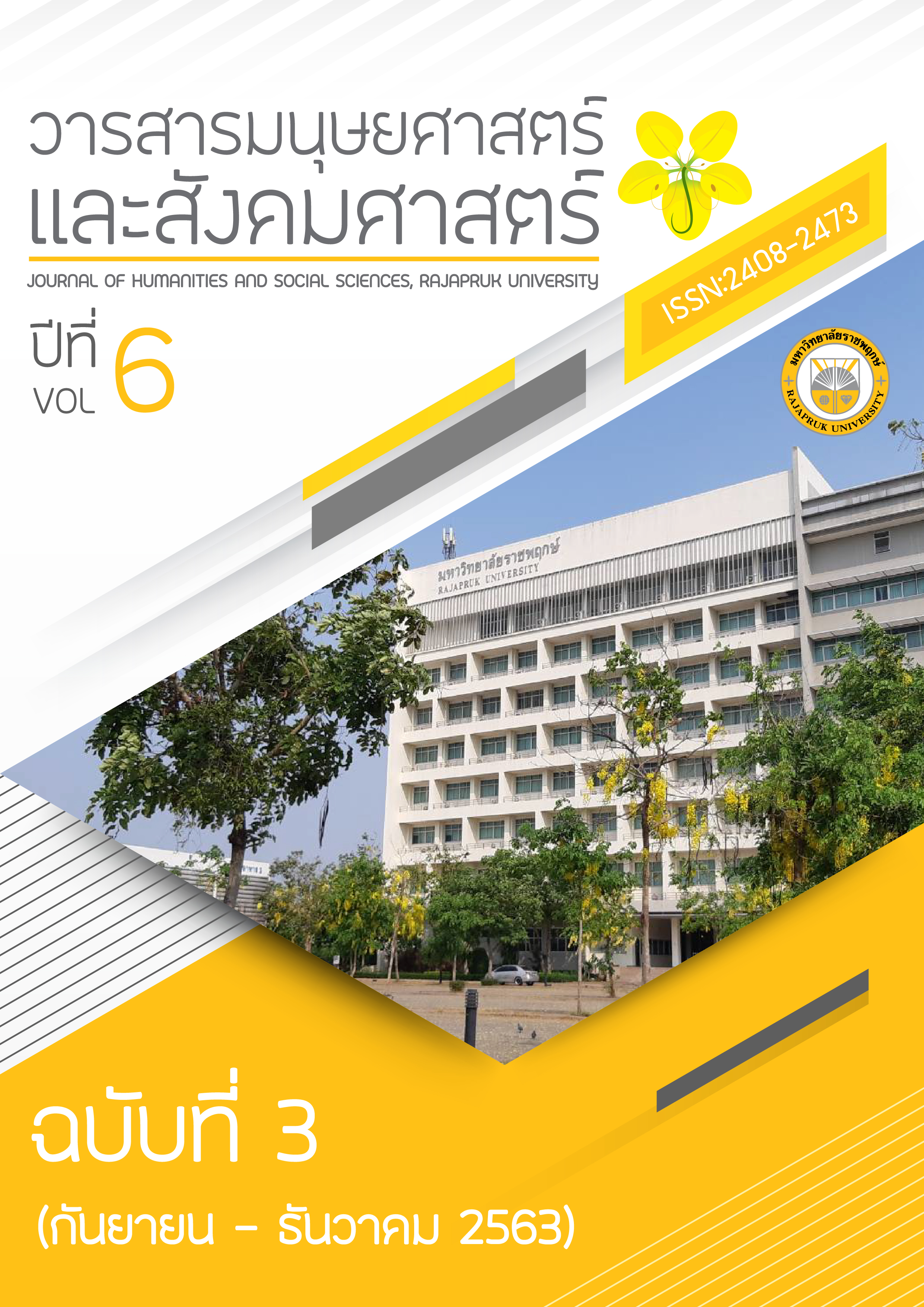คุณลักษณะของผู้ประกอบการเพื่อสังคมในประเทศไทย
Main Article Content
บทคัดย่อ
การวิจัยครั้งนี้มีวัตถุประสงค์เพื่อระบุถึงคุณลักษณะของผู้ประกอบการเพื่อสังคมโดยใช้หลักแนวคิดทางคุณลักษณะ ซึ่งประกอบด้วยโครงสร้างบุคลิกภาพและทุนมนุษย์ของผู้ประกอบการเพื่อสังคม กลุ่มประชากร คือ ผู้ประกอบการเพื่อสังคมและได้แบบสอบถามจำนวน 103 ฉบับที่ถูกต้อง ผลการวิจัย พบว่า ผู้ประกอบการเพื่อสังคมส่วนใหญ่เป็นเพศหญิงมีอายุระหว่าง 21-40 ปี ส่วนใหญ่เป็นโสด และระดับการศึกษาปริญญาตรี อีกทั้งธุรกิจเพื่อสังคมเป็นลักษณะธุรกิจเจ้าของคนเดียวและเป็นประเภทธุรกิจค้าส่งและค้าปลีก นอกจากนี้คุณลักษณะสามอันดับแรก คือ การวางแผน ความมุ่งมั่น และความผูกพัน อย่างไรก็ตามจากการค้นพบการศึกษาครั้งนี้ขอแนะนำให้ผู้ประกอบการเพื่อสังคมควรที่จะต้องได้รับการพัฒนาคุณลักษณะในด้านการโน้มน้าวใจ การสร้างความมั่นใจในตนเอง และความกล้าเสี่ยงในโปรแกรมสำหรับการบ่มเพาะผู้ประกอบการเพื่อสังคม
Article Details
เอกสารอ้างอิง
Brandsen, T., & Karré, P. M. (2011). Hybrid Organizations: No Cause for Concern? International Journal of Public Administration, 34(13): 827–836.
Brandstätter, H. (2011). Personality aspects of entrepreneurship: A look at five meta-analyses. Personality and Individual Differences, 51(3): 222-230.
Buiza, F. (2012). Personal Entrepreneurial Characteristics (PECs) CEFE Methodology. Retrieved from Carter, N. & C. Brush. (2004). Gender. In W.B. Gartner (Ed.): Handbook of entrepreneurial dynamics. The process of business creation (pp. 12–25). Thousand Oaks: Sage.
Chalermwan, P. (2015). The Characteristics of entrepreneur for Traditional Local Family. Owned Business in Chiang Mai, 4(4): 8.
Ching, H. Y., & Kitahara, J. R. (2017). Impact of the Exposure to Entrepreneurship Education on Students’ Entrepreneurial Intentions: A Case-Based Study of the Higher Education in Brazil. Business and Management Studies, 3(4): 85.
Chipeta, E.M., Koloba, H.A. and Surujlal, J. (2016). Influence of Gender and Age on Social Entrepreneurship Intentions among University Students in Gauteng Province, South Africa. Gender & Behavior, 14(1): 6885-6899.
Cochran, W. G. (1963). Sampling Techniques. 2nd ed. New York: John Wiley and Sons, Inc.
Dees, G.J. (2001). The meaning of social entrepreneurship. Retrieved on 20th November, 2019, from https://entrepreneurship.duke.edu/news-item/the-meaning-of-social-entrepreneurship
DeNisi, A. S. (2015). Some Further Thoughts on the Entrepreneurial Personality. Entrepreneurship Theory and Practice, 39(5): 997–1003.
Depositario, D. P., Aquino, N. A. & Feliciano, K.C. (2011). Entrepreneurial Skill Development Needs of Potential Agri-based Technopreneurs. Journal of International Society for Southeast Asian Agricultural Sciences, 17(1): 106–120.
Harding, R. (2006). Social Entrepreneurship Monitor. London: Global Entrepreneurship Monitor.
Israel, G. D. (1992). Sampling The Evidence Of Extension Program Impact. Program Evaluation and Organizational Development, IFAS, University of Florida, PEOD-5. October.
Iyigun, N. O. (Ed.). (2019). Creating Business Value and Competitive Advantage With Social Entrepreneurship. https://doi.org/10.4018/978-1-5225-5687-9
Leutner, F., Ahmetoglu, G., Akhtar, R., & Chamorro-Premuzic, T. (2014). The relationship between the entrepreneurial personality and the Big Five personality traits. Personality and Individual Differences, 63: 58–63.
Lynn, M. (1986). Determination and quantification of content validity. Nursing Research, 35: 382-386.
Mansfield, R. S., McClelland, D. C., Spencer, J. L. M., & Santiago, J. (1987). The identification and assessment of competencies and other personal characteristics of entrepreneurs in developing countries. Boston. Massachusetts: McBer and Company.
Paladan D. B. A., N. (2015). Business University Student Entrepreneurial Competencies: Towards Readiness for Globalization. Advances in Economics and Business, 3(9): 390–397.
Photchanachan, S. & Thechatakerng, P. (2019). Human Capital and Personal Entrepreneurial Competency on a Determination of Social Innovation. Journal of Management Sciences, 36(2).
Potasin, N. & Thechatakerng, P. (2014). Determinants of Starting Entrepreneurs through Non Formal Education’s Professional Practice in Hangdong District, Chiangmai Province, Thailand. World Journal of Management. 5(2): 25–36.
Ruangkrit, S., & Thechatakerng, P. (2015). Characteristics of Community Entrepreneurs in Chiangmai, Thailand. World, 6(1). Retrieved on 5th October, 2018, from http://wjmpapers.com/static/documents/March/2015/6.Sajeenan.pdf
Shrotryia, V. K., & Dhanda, U. (2019). Content Validity of Assessment Instrument for Employee Engagement. SAGE Open, 9(1).
Thechatakerng, S. (2008). Does Innovation Matter for micro-entrepreneurs in Thailand? Retrieved on 5th October, 2018, from www.wessociety.com/UploadslMisc/465%20WES08 Programme fmal.pdf
WorldEntrepreneur Summit 2008 (WES08), London, UK., January 10–11. Queen Elizabeth Conference Hall. Retrieved on 5th October, 2018, from www.wes08.net/content.php?38~Evidence+Base


